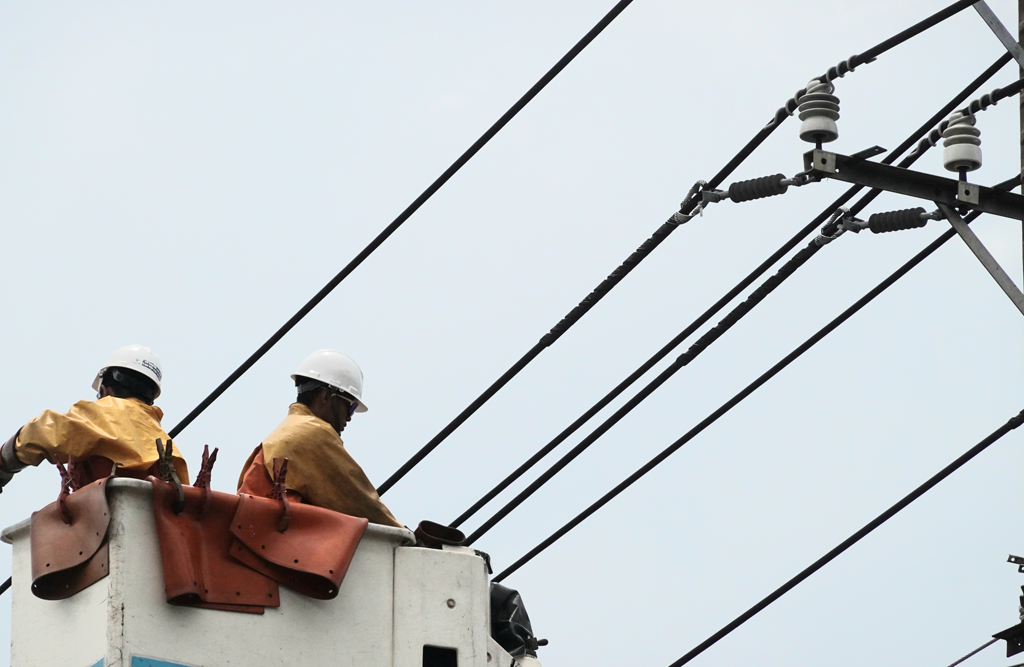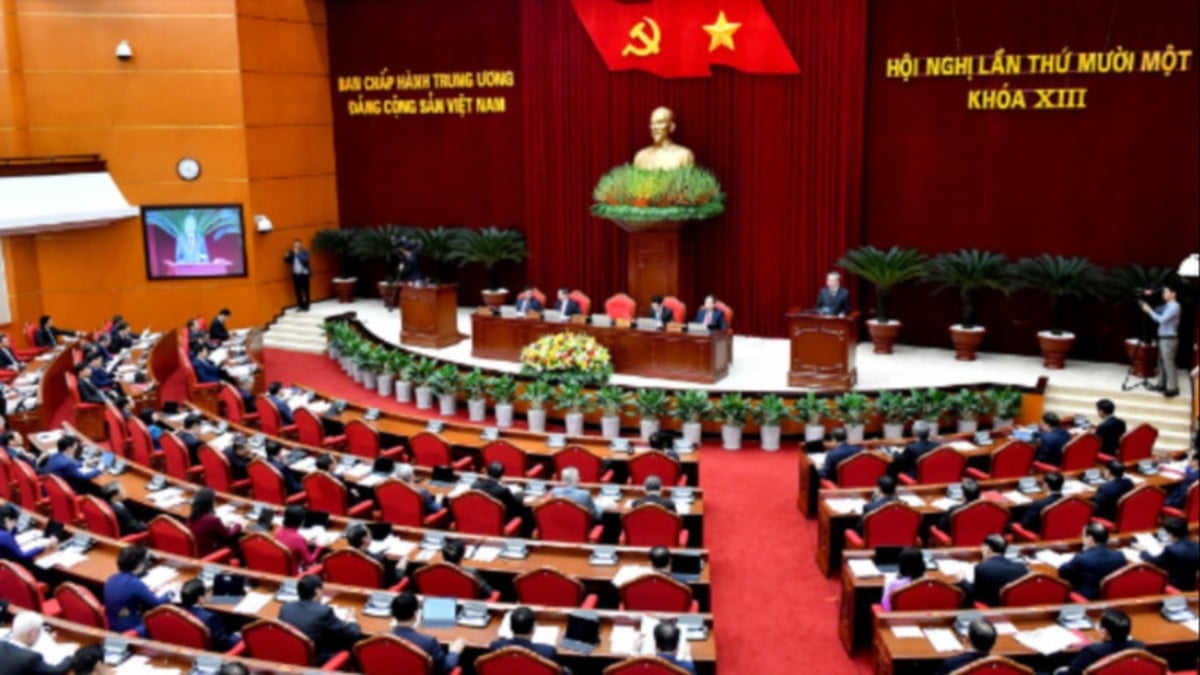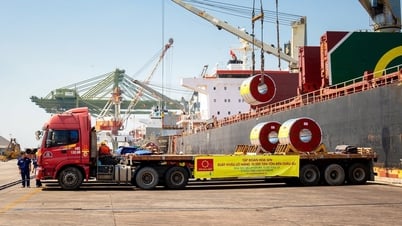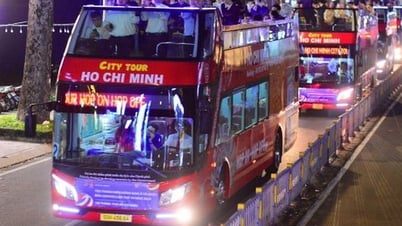Difficult in every way
On June 9, business associations including the Vietnam Logistics Services Association, the Vietnam Maritime Agents, Brokers and Services Association, and the Vietnam Shipowners Association sent official dispatches to Vietnam Electricity Group (EVN), the Northern Power Corporation (EVNNPC), and Hai Phong Electricity Company Limited regarding the supply of electricity to ports in the Hai Phong area.
According to these organizations, power outages due to incidents and rotating power outages occur frequently in the Hai Phong area. Meanwhile, port operations must always ensure 24/7 service capacity commitment for all customers, shipping lines, domestic and foreign import-export enterprises, and maintain the entire supply chain smoothly...
Therefore, the power outage has caused many difficulties for the ports, potentially causing businesses to have to pay huge compensation for the number of days the ship is waiting at the port, seriously reducing service quality, rapidly degrading equipment, affecting labor safety and especially the risk of losing customers.

Businesses face many difficulties due to lack of electricity
From there, the associations recommend: In the short term, it is recommended that the Hai Phong City and national power grid system should have backup power sources, consider redistributing power sources to each region and industry appropriately. In particular, priority should be given to ensuring that power supply to ports is always ready and continuous 24/7. In case of power outage due to incidents or force majeure, it is recommended that within 24 hours, the ports (power buyers) be notified of the cause and expected time of power restoration. At the same time, the electricity industry should send a written explanation to the ports within 8 hours after the incident is resolved because this is an important basis for the ports to arrange notifications, explanations, and coordination with customers and shipping lines. If there is a rotating power outage or grid maintenance, there must be a specific plan and at least 5 days notice...
Speaking to Thanh Nien Newspaper on the afternoon of June 9, Mr. Pham Quoc Long, Chairman of the Vietnam Association of Maritime Agents, Brokers and Services, analyzed: "Current port activities are all "green", using equipment from cranes, shafts... all using electricity, no longer running on oil like before, so power outages cause huge losses to businesses. Power outages mean that all port activities must stop completely. While each ship at the port loses 30,000 - 40,000 USD/day, every day there are about 20 - 30 ships entering Hai Phong port. Moreover, Hai Phong port only has one "tide", power outages for a few hours, ships have to wait until the next day to unload goods, causing many consequences of congestion in the logistics chain. Not to mention, power outages only notify businesses 6 hours in advance, making everything extremely passive. Businesses also recommend that there should be solutions to support and compensate for losses when the power is cut. In case ships are waiting at the port due to power outages, There is a policy of subsidizing electricity for ports to compensate for damages caused by power outages.
Not only the service industry, the manufacturing sector is also "distorted" by electricity. Ms. Pham Anh, sales director of a large garment processing company in Bac Giang , was upset: "There are only a few orders to do, the power is cut off 3 times in 1 week, how can we deliver on time. Not to mention the power company only gives 30 minutes notice, then cuts off the power until the next day, so no factory can handle it in time. That's not to mention, to meet the orders, during the day there is a power outage, we give workers time off, and in return we have to work at night. Working at night means paying extra labor costs."
Ms. Pham Anh's reflection is also a common reflection of many businesses sent to Thanh Nien Newspaper in the past few days. Some businesses said that to maintain operations during power outages, they have to spend more money to run generators. Previously, Binh Duong Electricity Company (under the Southern Power Corporation) also sent a dispatch to manufacturing businesses in large consumption sectors such as tires, steel, paper, etc. to promote electricity saving and increase the mobilization of generators to serve production when power outages occur. However, the cost of running generators makes businesses lose any profit from production and business. Generators with large capacity cost a lot of money, while low capacity makes it difficult to maintain production.
11 hydroelectric reservoirs have run out of water and must stop generating electricity.
Must be fixed as soon as possible
According to the Department of Industrial Safety and Environment (Ministry of Industry and Trade), up to now, 9 hydroelectric reservoirs have fallen below the dead water level, and generators at 11 largest hydroelectric plants have had to stop generating electricity due to lack of water. The amount of water flowing into the reservoirs is mainly for regulation, ensuring minimum flow. Even Thac Ba hydroelectric reservoir has had to do something unprecedented in its 52 years of operation: stop 2/3 of its generators because the water level in the reservoir is lower than the dead water level. If the drought continues and the water level falls below 45 m, Thac Ba Hydroelectric Joint Stock Company said it may have to stop generator number 3 because the risk is too great for operation.
According to the Electricity Regulatory Authority (Ministry of Industry and Trade), the Northern power system is facing the risk of power shortage at most times of the day. The available capacity of all sources in the North, including imported electricity, is about 17,500 - 17,900 MW, accounting for more than 59% of the installed capacity. Meanwhile, the demand for consumption is up to 20,000 MW and can be higher than 23,000 MW during hot weather. Therefore, the electricity industry said it is cutting power usage, reducing electricity demand by up to 30% during the hottest times. Normally, the average power output cut in the North each day is from 6 - 10%.
On June 9, Vietnam Electricity Group (EVN) sent an urgent document to the Northern Power Corporation requesting that the power be calculated and allocated to power companies with the principle of not cutting off power for 8 hours as prescribed in Circular 34 of the Ministry of Industry and Trade. In particular, EVN also noted that low-priority electricity customers in the energy-intensive customer group such as iron and steel production, cement, small-scale industry, etc. However, no matter how the power source is calculated and allocated, the reality is that the serious power shortage in the North has greatly affected production and business enterprises, and if prolonged, it will affect economic recovery.
Associate Professor, Dr. Dinh Trong Thinh, Academy of Finance, expressed his concern as the power shortage is "heating up" every day. The consequences of prolonged and continuous power outages greatly affect the production and business activities of enterprises. There are some measurable damages, for example, in livestock farming, a 1-hour power outage caused thousands of chickens to die from suffocation. But there are some immeasurable damages, such as the case of a high-tech manufacturing enterprise, where a power outage caused serious damage to the enterprise's machinery. The enterprise spoke as if crying because they had put everything into it, and had only been in operation for a short time... "We cannot let the power shortage last any longer. How long will the hot season last? 1-2 weeks or last until the end of June, into July? Enterprises will increase production costs, enterprises will have delayed orders, and business activities in general will stagnate... From there, it will affect our recovery and acceleration goals from the last 2 quarters of the year", Associate Professor, Dr. Dinh Trong Thinh warned.
The Korean Business Association in Vietnam (Kocham) also sent a petition to the Prime Minister, the Government Office and EVN regarding power outages, which affect business operations. Frequent power outages lead to businesses being unable to produce and workers being unemployed. At the same time, this is the reason why business orders are delayed and contracts are not met. More seriously, power outages cause businesses to suffer losses due to broken machinery and damaged goods. Kocham also recommended that power outages be stopped. In case of force majeure, it is recommended that specific and accurate notices be given in advance so that businesses can be proactive in production.
Source link






















































































![[Infographic] In 2025, 47 products will achieve national OCOP](https://vphoto.vietnam.vn/thumb/402x226/vietnam/resource/IMAGE/2025/7/16/5d672398b0744db3ab920e05db8e5b7d)














Comment (0)